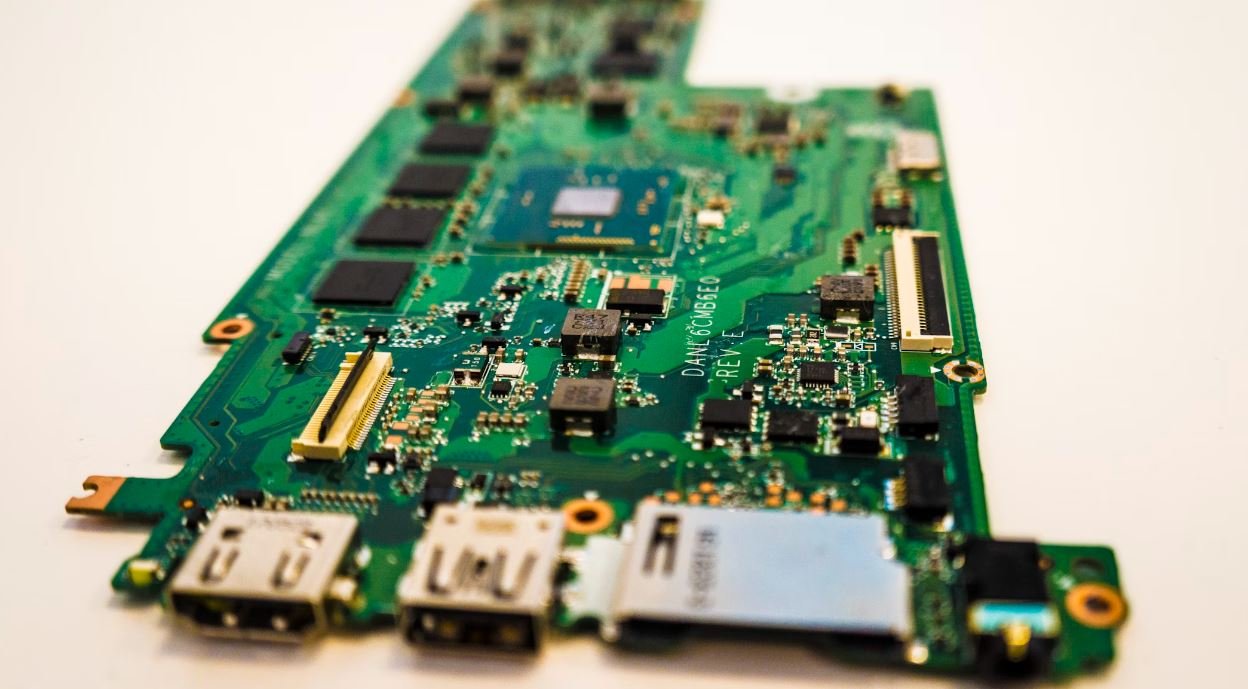Top AI Research Labs
Artificial Intelligence (AI) is a rapidly evolving field with numerous research labs working tirelessly to push the boundaries of innovation. These research labs dedicate their efforts to developing cutting-edge AI technologies and driving advancements in machine learning, natural language processing, computer vision, robotics, and more. In this article, we explore some of the top AI research labs that are leading the way in AI research and development.
Key Takeaways:
- AI research labs are at the forefront of driving technological advancements in the field.
- These labs focus on areas such as machine learning, robotics, computer vision, and natural language processing.
- Collaboration with universities, industry partners, and governments is crucial for AI research labs.
1. OpenAI
OpenAI is an independent research lab founded in 2015, with a mission to ensure that artificial general intelligence (AGI) benefits all of humanity. They are at the forefront of AI research, actively developing and promoting safe and ethical versions of AI. OpenAI publishes most of its AI research to foster collaboration and knowledge sharing among the global AI community. *They are known for their development of cutting-edge deep learning models and reinforcement learning algorithms.*
2. DeepMind
DeepMind, acquired by Google in 2014, is a leading AI research lab based in the United Kingdom. Their primary focus is on developing artificial general intelligence and leveraging it to solve complex real-world problems. DeepMind is renowned for its groundbreaking work in areas like deep reinforcement learning and AlphaGo, an AI system that defeated the world champion in the ancient Chinese board game, Go. *They strive to push the boundaries of AI by combining neuroscience and machine learning.*
3. Microsoft Research AI
Microsoft Research AI is Microsoft’s dedicated AI research division, focusing on advancing the state of the art in AI to tackle global societal challenges. The lab’s research spans areas such as natural language processing, computer vision, and machine learning. Microsoft Research AI collaborates extensively with universities, industry partners, and governments to drive innovation in AI. *Their interdisciplinary approach combines AI with other fields, such as biology and economics, to drive groundbreaking research breakthroughs.*
4. Facebook AI Research (FAIR)
Facebook AI Research (FAIR) is Facebook’s AI research lab devoted to advancing the field of AI and developing open-source tools for the AI community. FAIR is known for its contributions to computer vision, natural language processing, and reinforcement learning. The lab actively collaborates with academic institutions and partners with other AI research labs to promote knowledge sharing and accelerate AI advancements. *Their focus on democratizing AI and making it accessible to the wider community aligns with Facebook’s vision.*
5. Google Brain
Google Brain is a leading AI research lab within Google, dedicated to pushing the frontiers of AI research and applying it to various domains within Google’s ecosystem. They work on diverse topics, ranging from deep learning to generative models and robotics. Google Brain actively publishes research papers and contributes to open-source AI projects to foster collaboration and accelerate AI research. *Their deep learning models have consistently achieved state-of-the-art performance across various tasks and applications.*
Table 1: Comparison of Top AI Research Labs
| Research Lab | Founding Year | Main Areas of Focus | Notable Achievements |
|---|---|---|---|
| OpenAI | 2015 | General AI, Deep Learning, Reinforcement Learning | Development of advanced deep learning models and reinforcement learning algorithms. |
| DeepMind | 2010 | Artificial General Intelligence, Deep Reinforcement Learning | Achievement of AlphaGo, an AI system capable of beating the world champion in the game of Go. |
| Microsoft Research AI | 2016 | Natural Language Processing, Computer Vision, Machine Learning | Interdisciplinary research integrating AI with biology and economics. |
6. NVIDIA Research
NVIDIA Research focuses on cutting-edge AI technologies and their application to areas such as autonomous driving, healthcare, and robotics. They aim to bridge the gap between academic research and industry by developing innovative AI solutions. NVIDIA Research collaborates with universities and industry partners, driving advancements in areas like deep learning, GPUs, and high-performance computing. *Their research is at the forefront of enabling breakthroughs in AI applications across various industries.*
7. IBM Research AI
IBM Research AI is IBM’s AI research division dedicated to advancing the field of AI and leveraging it to solve complex problems. Their research spans areas like natural language processing, computer vision, and machine learning. IBM Research AI actively collaborates with academic institutions and industry partners to accelerate AI adoption and drive transformative AI discoveries. *Their focus on ethical AI deployment and transparency is evident in their research initiatives.*
8. Amazon Machine Learning
Amazon Machine Learning is Amazon’s research lab focusing on developing state-of-the-art machine learning techniques and applications. They aim to provide AWS users with powerful AI tools and services. Amazon Machine Learning works on various AI disciplines, including natural language processing, computer vision, and predictive analytics. *Their expertise in scalable AI solutions is evident through their AI-powered services like Amazon SageMaker.*
Table 2: Comparison of AI Research Labs – Continued
| Research Lab | Founding Year | Main Areas of Focus | Notable Achievements |
|---|---|---|---|
| Facebook AI Research | 2013 | Computer Vision, Natural Language Processing, Reinforcement Learning | Developing open-source tools for the AI community and contributions to computer vision and natural language processing. |
| Google Brain | 2011 | Deep Learning, Generative Models, Robotics | Consistently achieving state-of-the-art performance in deep learning models across various tasks and applications. |
| NVIDIA Research | 2006 | Deep Learning, Autonomous Driving, High-Performance Computing | Enabling breakthroughs in AI applications through research in deep learning, GPUs, and high-performance computing. |
9. Allen Institute for Artificial Intelligence (AI2)
The Allen Institute for Artificial Intelligence (AI2) was founded by Paul Allen, the co-founder of Microsoft. AI2 focuses on advancing AI research to improve the collective intelligence of humans and AI systems. Their research spans areas like natural language understanding, machine reading, and AI for scientific discovery. AI2 actively engages in collaborative research and provides open access to their discoveries and datasets, promoting transparency and collaboration. *Their mission to contribute to the broader AI research community serves as a driving force for their initiatives.*
10. Apple Machine Learning Research
Apple’s Machine Learning Research lab is dedicated to advancing the field of machine learning and its applications within Apple’s ecosystem. They aim to enhance user experiences through intelligent systems built on machine learning technologies. Apple Machine Learning Research focuses on areas such as computer vision, natural language processing, and privacy-preserving machine learning. *Their emphasis on privacy protection and machine learning on-device sets them apart in the AI research landscape.*
Table 3: More Top AI Research Labs
| Research Lab | Founding Year | Main Areas of Focus | Notable Achievements |
|---|---|---|---|
| IBM Research AI | 2013 | Natural Language Processing, Computer Vision, Machine Learning | Research initiatives focusing on ethical AI deployment and transparency. |
| Amazon Machine Learning | 2009 | Natural Language Processing, Computer Vision, Predictive Analytics | Development and provision of powerful AI tools and services for AWS users. |
| Allen Institute for Artificial Intelligence (AI2) | 2014 | Natural Language Understanding, Machine Reading, AI for Scientific Discovery | Contributions to the collective intelligence of humans and AI systems through research in natural language understanding and machine reading. |
In conclusion, the field of AI research is rapidly evolving, and these top AI research labs play a crucial role in driving advancements in the field. Through their focus on cutting-edge technologies, collaboration with various stakeholders, and contributions to the AI community, these labs are shaping the future of AI and its applications. Whether it is OpenAI’s mission to ensure the benefits of AI for humanity or Google Brain’s pursuit of pushing the frontiers of deep learning, each research lab brings its unique expertise and vision to the world of AI.

Common Misconceptions
Misconception 1: All top AI research labs are focused solely on developing killer robots
One of the most common misconceptions about top AI research labs is that their main goal is to develop killer robots or machines with malicious intents. However, this is far from the truth. While it is true that AI technology can be used in various industries, including defense, top AI research labs are primarily focused on exploring artificial intelligence’s potential to advance the society as a whole.
- AI research labs focus on developing AI solutions that can benefit various industries, such as healthcare, finance, and transportation
- These labs invest heavily in ethical research practices and ensure that AI algorithms are developed with human values and safety in mind
- The goal of top AI research labs is to make AI systems more beneficial and accessible to everyone, rather than creating harmful technologies
Misconception 2: Top AI research labs always achieve breakthroughs quickly
Another misconception is that top AI research labs regularly achieve groundbreaking discoveries at a fast pace. While they do make significant contributions to the field of AI, it is essential to understand that advancing AI technology is a complex and time-consuming process that requires a considerable amount of research, experimentation, and collaboration.
- Research labs often encounter challenges and setbacks that can impede their progress towards breakthroughs
- Scientific progress in AI is often incremental, building upon previous research findings
- Breakthroughs in AI usually require significant investments in time, resources, and experimentation
Misconception 3: Only large corporations can afford to have top AI research labs
Many people believe that only large corporations have the financial means to establish and maintain top AI research labs. While it is true that companies like Google, Microsoft, and Facebook have robust AI research divisions, there are also many other institutions, including universities and government-funded organizations, actively participating in cutting-edge AI research.
- Top universities across the globe have renowned AI research labs that contribute significantly to the field
- Government initiatives and funding programs support AI research conducted in public institutions
- Startups and smaller companies often collaborate with research institutions to access AI expertise and innovation
Misconception 4: AI research labs are only focused on creating superintelligent machines
AI research labs are often associated with an obsession for surpassing human intelligence and creating superintelligent machines that can outperform humans in every aspect. While advancing AI technology is a core objective, the goal is not to create machines that dominate humanity; rather, it is to create intelligent systems that can augment human capabilities and assist in solving complex problems.
- AI research labs focus on developing AI systems that collaborate with humans rather than replacing them
- The emphasis is on ethical practices, responsible development, and ensuring AI aligns with human values
- Augmented intelligence, where AI complements human abilities, is a key research area for top AI labs
Misconception 5: AI research labs do not consider the ethical implications of their work
While there have been concerns raised about the ethical implications of AI, it is a misconception that AI research labs are not concerned with these issues. In reality, top AI research labs prioritize ethical considerations and work actively to address the potential risks associated with AI technology.
- Leading AI research labs invest significant effort in ethical research practices and policies
- They actively contribute to the development of ethical guidelines and frameworks for AI technology
- AI research labs conduct research on the societal impacts of AI and work to mitigate potential risks

Introduction
Artificial Intelligence (AI) research is advancing at a rapid pace around the world, with numerous labs at the forefront of groundbreaking discoveries. In this article, we explore ten such renowned AI research labs and highlight some fascinating information about each one.
1. OpenAI: GPT-3
OpenAI, a leading research lab, is known for its creation of GPT-3 (Generative Pre-trained Transformer 3), one of the largest language models ever developed. With 175 billion parameters, GPT-3 can generate human-like text, revolutionizing natural language processing.
2. DeepMind: AlphaGo
DeepMind, an AI lab owned by Google, gained immense recognition with AlphaGo, an AI program that defeated the world champion Go player in 2016. This significant achievement showcased the power of AI in complex strategic games.
3. MIT CSAIL: Robotic Navigation
MIT’s Computer Science and Artificial Intelligence Laboratory (CSAIL) excels in robotic navigation research. Their algorithms and systems enable robots to autonomously navigate complex environments, supporting advancements in various industries, including healthcare and logistics.
4. Stanford AI Lab: Computer Vision
Stanford University‘s AI Lab is renowned for its expertise in computer vision. Their research focuses on developing machine learning models that can accurately perceive and interpret visual data, with applications ranging from autonomous vehicles to image recognition technologies.
5. IBM Research AI: Project Debater
IBM Research AI is responsible for Project Debater, an AI system capable of engaging in complex debates with humans. It combines natural language processing, speech recognition, and machine learning algorithms to present coherent arguments and counter-arguments.
6. Facebook AI Research (FAIR): DeepFace
Facebook AI Research (FAIR) made significant strides in facial recognition with DeepFace. This AI model can identify individuals in images with remarkable accuracy — a pivotal development in the field with implications for security, privacy, and social media.
7. NVIDIA Research: StyleGAN
NVIDIA Research introduced StyleGAN, an AI model that generates realistic human faces based on given input conditions. StyleGAN has had a significant impact on creative fields, offering tools for artists, designers, and game developers to create lifelike characters.
8. Amazon Science: Autonomous Delivery
Amazon Science spearheads research on autonomous delivery systems. Their work focuses on developing sophisticated algorithms and hardware to enable efficient and safe autonomous delivery drones, aiming to revolutionize the logistics industry.
9. Google Brain: Transformer Architecture
Google Brain is a prominent AI research lab that developed the Transformer architecture, widely adopted in natural language processing tasks. Transformers have revolutionized machine translation systems, chatbots, and other language-based applications.
10. Baidu Research: Apollo
Baidu Research is known for its development of Apollo, an open-source autonomous driving platform. The project aims to accelerate the progress of self-driving technology by providing a comprehensive software and hardware platform to facilitate research and development.
Conclusion
AI research labs play a pivotal role in shaping the future of artificial intelligence. Each lab highlighted in this article has made significant contributions to diverse areas, including language processing, robotics, computer vision, and autonomous systems. As these labs continue their groundbreaking work, AI will undoubtedly revolutionize various industries and positively impact society as a whole.
Frequently Asked Questions
Top AI Research Labs
What are the top AI research labs?
Some of the top AI research labs include OpenAI, DeepMind, Google Brain, Facebook AI Research (FAIR), Microsoft Research, IBM Research AI, Amazon Web Services (AWS) AI, Baidu Research, and Apple AI Research.
What is OpenAI’s research focus?
OpenAI focuses on conducting research to ensure artificial general intelligence (AGI) benefits all of humanity. They emphasize long-term safety, technical leadership, and cooperation to create AI technologies that are safe and beneficial.
What are the major projects undertaken by DeepMind?
DeepMind has worked on various projects, including AlphaGo, an AI program that defeated world champion Go player, and AlphaZero, a general-purpose AI system that achieved superhuman performance in several board games.
What is the focus of Google Brain’s research?
Google Brain focuses on conducting cutting-edge research in many areas of AI, including deep learning, reinforcement learning, natural language processing, computer vision, and robotics, among others.
What research areas does Facebook AI Research (FAIR) cover?
Facebook AI Research (FAIR) covers various research areas, such as computer vision, natural language processing, speech recognition, AI ethics, and the intersection of AI and social science.
What are some notable projects by Microsoft Research?
Microsoft Research has been involved in several notable AI projects, including the development of the deep learning framework, PyTorch, and the Microsoft Cognitive Toolkit (CNTK), which is a deep learning library.
What are the AI research areas explored by IBM Research AI?
IBM Research AI explores a wide range of AI research areas, including natural language processing, machine learning, computer vision, robotics, healthcare informatics, quantum computing, and AI ethics.
What AI projects are undertaken by Amazon Web Services (AWS) AI?
Amazon Web Services (AWS) AI undertakes various AI projects, such as Amazon SageMaker (a machine learning service), Amazon Rekognition (image and video analysis), and Alexa AI (voice-controlled virtual assistant).
What research areas does Baidu Research focus on?
Baidu Research focuses on a wide range of AI research areas, including deep learning, computer vision, natural language processing, speech recognition, robotics, and autonomous driving.
What is Apple AI Research’s primary research focus?
Apple AI Research conducts research mainly in the areas of machine learning, computer vision, natural language processing, and speech recognition to enhance various Apple products and services.




